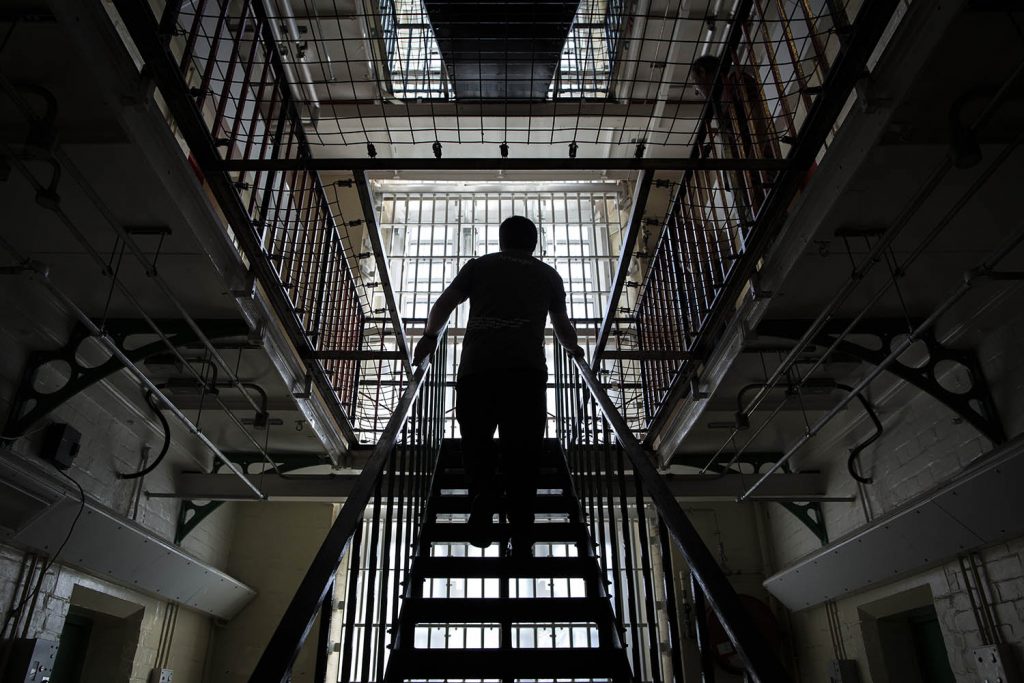
Prisons across England and Wales were condemned as “increasingly volatile” with “rising levels of violence” by the prisons inspectorate in its 2024 annual report, published in the same week as thousands of newly freed convicts celebrated their government-mandated early release thanks to packed jails running out of cell space. There is no quick fix for the catastrophe engulfing the country’s prisons. Inmates who are suddenly let out early en masse pose risks to the community that the probation service is struggling to mitigate. Meanwhile, the report of the chief inspector of prisons made clear that many of those still incarcerated have little to no access to rehabilitation or education that might help them rebuild lives on the outside when they have served their sentences.
How bad are prisons really? Frequently dire. In 2023 alone, four Urgent Notifications were issued by Her Majesty’s Chief Inspector of Prisons after inspectors turned up unannounced, including one on a children’s prison, Cookham Wood Young Offenders Institution (which was closed soon after). An Urgent Notification is the most serious tool the inspectorate has in its toolbox to alert ministers to findings that a prison is dangerous and harmful to inmates and in some cases, staff..
In short:
- Prisons are full to bursting, with an accompanying rise in violence and bullying.
- Rates of assault, self harm and suicide are high and on the increase.
- Staff are stressed, scared and scarce – many are also young, inexperienced and poorly trained.
- Much of the prison estate is old, crumbling and insanitary.
- Education provision is typically scant to non-existent, a situation described as “appalling” by inspectors.
- Gaps in vital mental health services were “disturbing” and had resulted in unspecified “adverse patient outcomes”.
- Drugs are rife, often brought in by organised criminal gangs.
- Segregation is used too often and in the case of one children’s prison, amounted to solitary confinement.
- Recruitment of good leadership staff is tough, with governor roles struggling for applicants.
Why has it become so bad? The prison population rose by 3,497 in the year to 31 March 2024 – a rise of 4 per cent on the previous year. And it has been climbing for years. Judges are remanding more people in custody pending trial; those trials are increasingly delayed as the criminal justice system creaks at the seams (not enough judges, low paid criminal barristers have fled the profession, and court staff have been culled under austerity measures); and sentences on conviction are becoming longer.
Meanwhile, there is an estimated £1 billion of outstanding maintenance work to be done.
Any good news? Women’s prisons are better than men’s (but still, in many ways, not great).
Not banged up. The government’s early release scheme may not quite be a get-out-of-jail free card: inmates can now be released after serving 40 per cent rather than 50 per cent of their sentence. But in shifting prisoners from inside to outside, is the government simply transferring the risk?
The benefit of the early release scheme is that a few more cells are available for remanded or newly sentenced convicts, rather than leaving them to rot in police cells which are a) unsuitable, and b) clog up the system to the point of standstill. However, the risk will inevitably now be borne by the community into which inmates are being abruptly released, often with no home, job, family or friends to go to.
Merry-go-round. Some just-freed prisoners themselves don’t believe the early release scheme will make any difference to the prisons crisis. Speaking to The Times, shoplifter Mark Burke, 52, who was released after serving three months of his sentence, said he’d been to jail more than 50 times. Asked whether prison had helped him, he said, “I’ll be back”. Another former inmate, asked if he felt rehabilitated, said: “No, no I don’t if I’m being honest. There’s no reform, no help in there.”
Build, build, build? If projections that the prison population could rise by a further 27,000 by 2028 come true, we’ll have to. But there are increasing calls for a total rethink of what should be done with individuals convicted of crimes.
In a Guardian letter published last month, Joe Sim, emeritus professor of criminology at Liverpool John Moores university said that “fundamentally transforming the criminal justice system should be the goal – disinvesting from the current building programme and investing in radical alternatives to prison, operating within a broader system based on social welfare for all… is the answer to the crisis, not more of the same failed policies.”
It’s an invitation that Charlie Taylor, chief inspector of prisons, reiterated, albeit in less trenchant language, as he signed off his annual report. “Alongside decisive short-term action,” he said, “there is a pressing need for a much bigger conversation about who we are sending to prison, for how long and what we want prisoners to do while they are inside.”
The upshot? Any radical reform will be controversial and slow. It is overwhelmingly likely that at least some serious crimes will be committed by prisoners released early who would otherwise have been behind bars. The fact that the government will have taken this into account in deciding to mandate early release is a chilling indication of just how shocking the risk projections must have been had prisons entirely run out of cell space.







